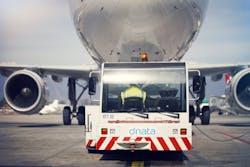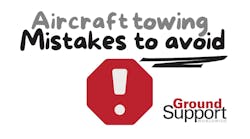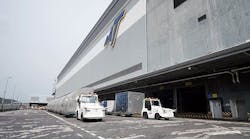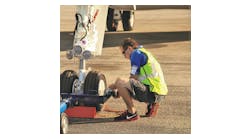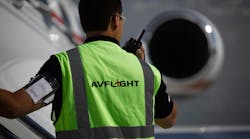The Middle East, especially the Gulf region, is one of the parts of the world where the aviation industry is growing more than anywhere else. The geographically strategic location of the region - between the European and the Asian continents - and a supportive aeronautical infrastructure are changing the way many long and medium haul passengers travel. Middle Eastern air carriers are also developing significant networks in Africa with the results that, paradoxically, it becomes more economical, as well as practical due to frequent connections, to fly from Europe to Africa and back with a stopover in a Middle Eastern hub than without a stopover.
It's a fact that the booming aviation industry of the Middle East, namely of the Gulf region, cannot develop by relying only on the local workforce of these Middle Eastern economies. Indeed a significant proportion of the workforce comes from overseas to work at the major airports, air navigation service providers and airlines in the region. This trend holds true also for many other economic sectors.
The aircraft ground handling business is key in supporting the sustainability of the aviation industry in the Middle East and it is significantly affected by the practice of recruiting personnel from overseas.
Where From?
The ramp workforce is not limited to a certain region but rather employees are recruited from all over the world. In the Gulf countries the ramp workforce’s origin varies from Australasia, Philippines, the Indian Subcontinent (India, Pakistan, Sri Lanka, Bangladesh), Africa (South Africa, Kenya), and Europe. The origin is dependent upon the type of job advertised by a ground service provider’s recruitment function, i.e. supervision to operators or manual labor.
Jon Conway, a Divisional Senior Vice President at dnata in Dubai, United Arab Emirates (UAE) confirmed the theory that Middle Eastern firms source ramp personnel internationally.
“We source ramp personnel primarily from overseas, although many expatriate colleagues are recruited locally," Conway says. "Our top five nationalities working in airside operations are: Indian, Pakistani, Philippine, Bangladeshi and Sri Lankan. Across our UAE business, we have nearly 100 nationalities. We are, by any definition, a multi-cultural organization and it is one reason it is such a pleasure to work here.”
Why Do Personnel Relocate?
The workforce of a given industrial sector being so heavily populated by foreign residents is a phenomenon due to the possibility of better standards of living, better working conditions, a human resource management ethics and primarily the non-availability of employment opportunities back in one’s home country.
“It is probably important to remember the UAE indigenous population represents roughly 15 percent of the overall UAE population," Conway says. "Of this 15 percent, a large percentage of Emiratis work in the state, as well as the private sector. Combined with the enormous development and growth in Dubai (indeed the UAE) it is a very simple fact that Dubai absolutely needs large numbers of ex-patriate personnel to help operate many businesses and support the infrastructure development we see here. Fortunately, we have no shortage of expatriates seeking employment with us.”
Coping With Seasonality
The practice of recruiting personnel from overseas also provides the advantage to cope with the seasonality that characterizes the airline business.
In the Gulf countries, the expatriate workforce is bound by contracts and limited to single employers only. In addition, moonlighting is not permitted. This allows operators, ground handling firms and airports to cope with seasonality. The issue of coping with seasonality is greater in other regions of the Middle East and North Africa where the workforce is generally local and terms and conditions of contract vary significantly between locals and expatriates.
For Dubai, however, seasonality is simply not an issue.
“With the growth we see, about 80 million passengers forecasted for Dubai International this year, it is generally about more staff - not less,” Conway says.
Ramp Safety
Sourcing ramp personnel from overseas is often subject to a cultural prejudice: some believe that ramp operators sourced from foreign countries are more likely to be involved in ramp safety events, because of a possibly limited sense of belonging to the organization and the hosting country.
However, this is not the case. If the ramp workforce is predominantly from overseas, then surely even one event will skew the statistics. Accidents and incidents are not related to one’s ethnic background or from which country the ramp workforce comes from, but rather they result from a combination of dysfunctional circumstances and interactions at a moment resulting in an event.
Conway also says that there is absolutely zero evidence of foreign ramp personnel being more often involved in safety events.
“Ramp safety, in fact all workplace safety, is a prime focus and always will be,” Conway says.
Conway also refutes the notion of possible issues as a result of foreign employees’ sense of belonging to the organisation leading to reckless behavior.
“Again, there is zero evidence of this," Conway says. "One of the most enjoyable parts of my job is, on a monthly basis, to present long service awards to dnata colleagues who have worked 20 years or more within the organization. I can assure that their sense of belonging is often humbling.”
The presence of issues regarding the sense of belonging is dependent on the employee and employer relationships and the terms of the work contracts. The sense of belonging is very personal and can vary from person to person for varied reasons, including the existence of problems that are specific to the individual and the organization simply cannot influence.
Maximizing Training Effectiveness
Recruiting ramp employees from overseas provides the advantage of matching workforce demand with supply in a flexible way; the challenge remains, however, on how to maximize the effects of training given the notoriously low retention rates of employees in the ramp environment.
dnata’s approach is to train all of its staff to the very same exacting standards.
“We are one of the few ground handlers who have taken, as a basis for our training, a Government approved vocational training program," Conway says. "Our attrition levels are lower than one would think and is in single figures."
The challenge on how to maximize the effects of training can also be met by means of constant reminders and by investing on awareness and mindfulness in the workplace. Where possible, if there is a high enough number of employees, training by their own peers and in their native language should be delivered to ramp personnel.
Feeling at Home
Middle Eastern carriers are leading a revolution in the long-haul domain of the airline business by means of high standards of service and a wide array of connections. The aircraft ground handling sector is of key importance in the Middle East’s aeronautical infrastructure that is supporting this revolution.
Large communities of expatriates have been and are moving into the Gulf region to work on the ramp. They move in search of a better standard of living and improved working conditions. These operators contribute significantly to the resilience of aircraft ground handling and it is important that organisations recognise and continue to recognise their contribution.
